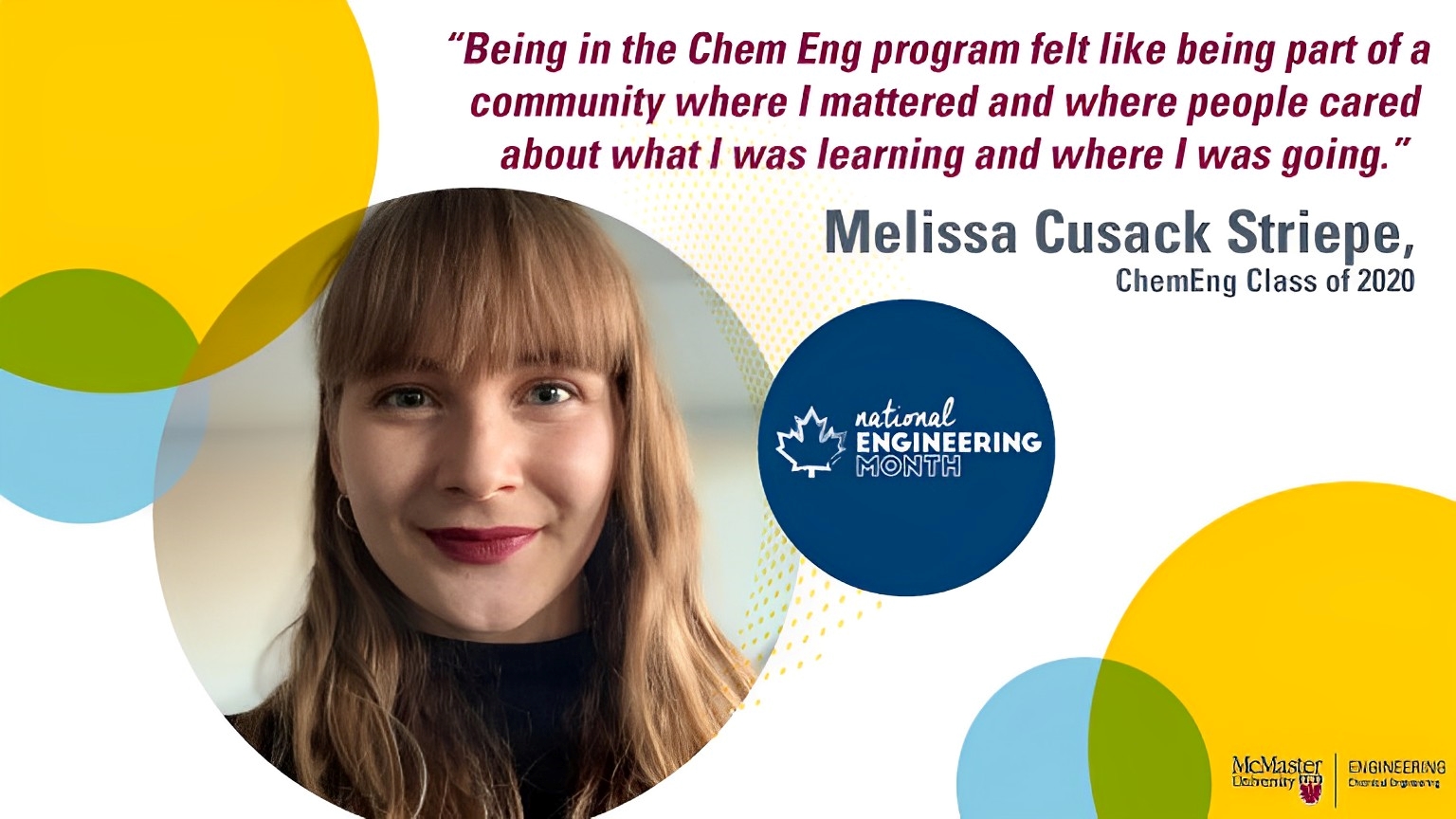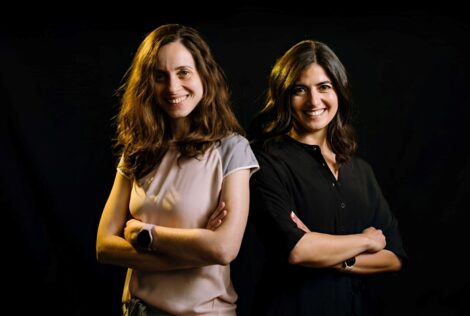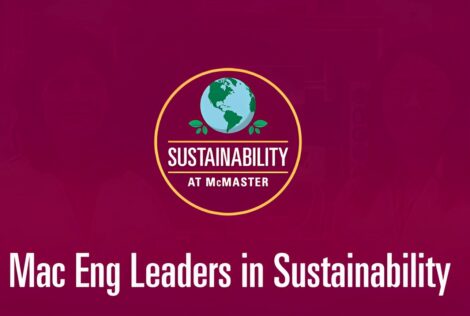

Melissa Cusack Striepe (She/Her)
Melissa currently works as an economist/policy analyst for Natural Resources Canada, where she assesses strategies for mitigating climate change and moving towards a more sustainable economy.
McMaster Chemical Engineering Class of 2020
What would you say the most interesting part of your job is?
I’d say the most interesting part of my job is getting to ask philosophical questions about how we can achieve net zero and transition the Canadian economy in a way that’s going to be good for Canadian jobs and the environment overall. I do a lot of energy and economic analysis, which includes everything from modeling to other approaches, and this lets me explore questions asking how we can move the economy towards doing better for the climate.
What led you to choose the Chemical Engineering program at McMaster?
I always knew I wanted to work on environmental issues, so I chose to go into engineering because I wanted the technical background. I wanted to understand the technologies we’d need in order to counteract climate change and protect the environment. And when I was looking at the different options, Chemical Engineering seemed like the obvious choice because you get to touch on energy systems, water, chemical processes, on the whole process systems perspective. That’s really important when we’re talking about the environment and environmental problems.
Do you think your Chemical Engineering degree gave you an advantage when you were looking for a job?
I definitely think it did in a couple of ways. First, the professors really cared about helping us build our networks, helping us figure out what we wanted to do, and listening to what we wanted to do in building those connections. That’s how I got connected with the professor who I did my master’s with. So that community aspect was really beneficial. The other thing was that the Chem Eng program puts a lot of effort into offering really strong upper year courses, and a lot of these courses were highly applicable for what I was looking to do. So, everything from energy systems courses to optimization courses. These offerings ultimately made me realize what I wanted to be doing research on for my masters, which has carried on to my current job.”


